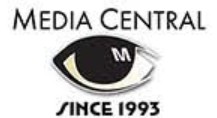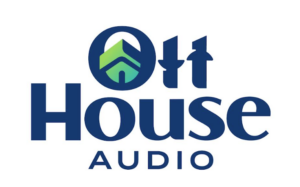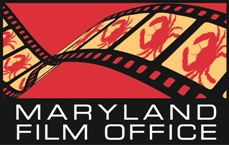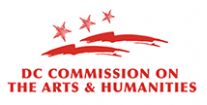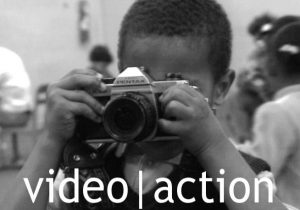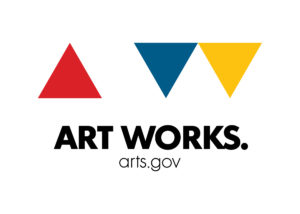By Sarah Katz
Producer, KatzTale, sarah@katztale.com
The AFI DOCS season has long been one of the most exciting times of the year for movie lovers in the Washington, DC region. We come together to observe, through cinema, how the most important stories of the day are playing out in people’s lives. By virtue of the work, documentary producers and festival programmers have their finger on the pulse of national and international events. The filmmakers who come to Washington during AFI DOCS examine how to grapple with topics that most impact our lives. This year the connections between the screen and real life were amplified. We are experiencing the festival on the small screen during COVID-19, when many are pushing for the US to finally come to terms with its devastating racial history, we are universally celebrating Juneteenth, the summer solstice, and watching a Republican campaign rally in Tulsa unfold. It is hard to remember a time when so many events simultaneously played out on the screen and on so many US streets.
The AFI DOCS Forum is equally important as moderators invited participants to examine press freedom, filmmakers’ safety amidst protests, as well as funding and distribution challenges. The business discussions are essential. It is to all our benefit to get these stories – covering topics like racial discrimination in facial recognition software, women police officers in Minneapolis, and women of color as candidates – funded and distributed.
During the AFI DOCS Forum, topics including press safety and freedom permeated throughout the five days. The Wednesday afternoon panel “Be Safe”: Navigating the Perils of News Gathering and Documentary Production was moderated by Carrie Lozano (Director, Enterprise Documentary Fund, International Documentary Association) and featured Raney Aronson-Rath (Executive Producer, FRONTLINE), Sarah Holt (Producer for NOVA and PBS), Roberto Roldan (City of Richmond Reporter, VPM, PBS, NPR), Nausheen Dadabhoy (Cinematographer, CONSCIENCE POINT), and Jacqueline Olive (Director, ALWAYS IN SEASON). The panelists discussed their firsthand experience covering current events. Olive’s film follows the story of 17-year-old Black youth Lennon Lacy, who in 2014, was found hanging from a swing set in Bladenboro, North Carolina. Olive noted similar Black deaths in recent months which police categorized as “suicides” while communities believed they were lynchings. Roldan covered the January 20, 2020 Second Amendment rally held in Richmond, VA. Of a reported attendance of 22,000 people, authorities described many as white supremacists and members of armed militia groups. Aronson-Rath spoke of FRONTLINE’s protocol to hire security details while covering stories inside and outside of the US.
 Along similar lines Jason Rezaian from The Washington Post moderated a discussion with Philippine Journalist Maria Ressa and Filmmaker Ramona Diaz subject and director respectively of the doc, A THOUSAND CUTS. The film chronicles dangers faced by Ressa reporting on Philippine President Rodrigo Duterte. When discussing why Americans should be concerned about Filipino press freedom, Ressa pointed out that her country is a former US colony and that the US faces similar press concerns.
Along similar lines Jason Rezaian from The Washington Post moderated a discussion with Philippine Journalist Maria Ressa and Filmmaker Ramona Diaz subject and director respectively of the doc, A THOUSAND CUTS. The film chronicles dangers faced by Ressa reporting on Philippine President Rodrigo Duterte. When discussing why Americans should be concerned about Filipino press freedom, Ressa pointed out that her country is a former US colony and that the US faces similar press concerns.
These talks were interspersed with sessions on the business of filmmaking and professional partnerships. On opening day, the AFI DOCS Forum began with a frank discussion, Distribution New Frontiers moderated by Jordana Meade (ITVS Director of Distribution) and panelists Lois Vossen (Executive Producer, INDEPENDENT LENS), Loira Limbal (Senior Vice President for Programs, Firelight Media, Producer/Director, THROUGH THE NIGHT), Beth Levison (Producer, WOMEN IN BLUE, MADE IN BOISE), and Matthew Burke (Director of Sales, Submarine Entertainment). During the panel, Limbal broached compelling questions about transparency in distribution. She wanted to know how distributors help filmmakers better understand complicated and confusing distribution channels. On Friday, Susie Hernandez (WNET) led a panel on the importance of public media and the collaboration between local public media stations and filmmakers regarding distribution and funding. Finally Yael Melamede and Susan Margolin, both representing the Documentary Producers Alliance, reviewed DPAs recent work on creating documentary crediting guidelines, a new initiative on the documentary financing including waterfall models, financing structures, profit sharing, and investor’s agreements.
Three of the films screened at AFI DOCS, CODED BIAS, WOMEN IN BLUE, and FREEDOM ON MY MIND, all focused on civil rights and the intricate ways that civil rights are evident through various eras and sectors of US society. CODED BIAS examined racial bias in artificial intelligence in the present day and potential future dangers. It follows superstar computer scientist and MIT civic media graduate researcher Joy Buolamwini as she investigates how artificial intelligence constricts liberties, particularly those of people of color. WOMEN IN BLUE covers women in the Minneapolis Police Department. The film explores the women-run department and how nuanced dynamics changed after the first Black male Minneapolis Police Chief replaced a White female police chief. The film follows Alice White who faces complex responsibility since as a policewoman she represents the power of law enforcement and is also a member of the Black community targeted by her colleagues. FREEDOM ON MY MIND, produced in 1994 is a retrospective of the Mississippi voter registration campaign of 1961-1964, the Southern White culture of that time, the obstacles Black activists faced registering Black people to vote, and finally how the national Democratic Party leadership refused to recognize the Mississippi Freedom Democrats Party. As a viewer, I wondered how history might have taken a different course if the MFDP had become a part of the Democratic mainstream.
Every year AFI DOCS programmers show us groundbreaking films through which directors dig deeper and deeper for the truth. As I reflect on the themes under the spotlight this year in particular – press-freedom, the Minneapolis Police Department, dangers of AI, violence against People of Color, and civil rights – it feels like more than ever the festival is an honest window into our world. As a viewer watching from home under lockdown the importance of documentary filmmaking has never been more clear.
Panel discussions are coming soon to the American Film Institute YouTube Channel: https://www.youtube.com/channel/UCmO_WjaWDwimv8Kl7GHFxAA
Finding Common Ground: How Local Public Television Stations and Filmmakers Can Work Together in a Time of Crisis
On YouTube: https://www.youtube.com/watch?v=PpLnJDSEmP4
2020 Festival Highlights are here: https://www.afi.com/news/highlights-from-the-afi-docs-2020-virtual-festival/
Photo identification: A WASHINGTON POST PRESS FREEDOM PARTNERSHIP CONVERSATION WITH PHILIPPINE JOURNALIST MARIA RESSA AND FILMMAKER RAMONA DIAZ (A THOUSAND CUTS) Jason Rezaian (Global Opinions Writer, The Washington Post), Ramona S. Diaz (Director/producer, A THOUSAND CUTS), Maria Ressa (CEO & Executive Editor, Rappler) Photo courtesy of AFI DOCS




